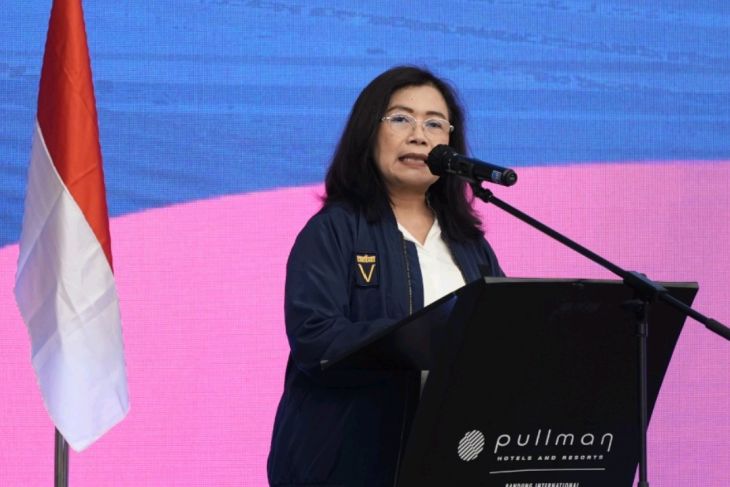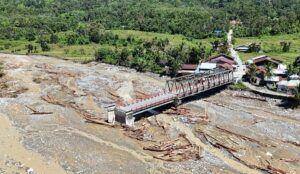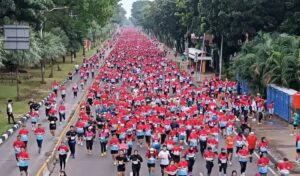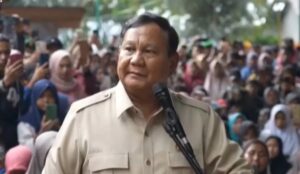Indonesian Government adopts double strategy for Papua’s development

Jakarta, The Gulf Observer: The administration of President Joko Widodo and Vice President Ma’ruf Amin adopted the two approaches of infrastructure and human resources (HR) for Papua’s development pursued in the past three years, the Presidential Staff Office stated.
In a press release received here on Friday, Deputy V for security and human rights at the Presidential Staff Office Jaleswari Pramodhawardani remarked that these two approaches were the basis for the development in Papua that would progress continually.
Pramodhawardani expected that the Papuan regional government would follow up on the basis that had been established by pursuing relations and building a two-way communication pattern with the local communities.
In addition, the most important aspect was how public services and the fulfillment of community rights were prioritized, she remarked.
At every opportunity, President Jokowi emphasized that the current national development paradigm must be Indonesia-centric and not just Java- or Sumatra-centric, Pramowardhani stated.
She noted that since the start of his administration, Jokowi had committed to building an Indonesia-centric scenario, starting from Papua.
“Mr President visited Papua 15 times. That is important because the head of state sees it based on data and facts,” she noted.
It was also said that Jokowi’s infrastructure approach was conducted from the most basic aspects of education to medical services.
Since the first period of President Jokowi’s administration until the second term with Vice President Ma’ruf Amin, the commitment to bring social justice to all Indonesian people, including Papua and West Papua, has been held close.
She said that the commitment was not mere rhetoric, but it was made true by the president through Presidential Instruction Number 9 of 2020 regarding the Development on Welfare in Papua and West Papua. This Presidential Instruction requires 43 ministries and institutions to participate in pushing the development of Papua.
“Hence, it is not just a commitment to visit that place, which has been done 15 times, but (also) through the issuance of supporting regulations that are all contained in the National Medium-Term Development Plan. In fact, specifically for Papua, it has become a National Priority Program,” she added.
To facilitate the development of Papuan human resources, she stated that the government adopted a welfare approach over and above the security approach. Indigenous Papuans, with their affirmative policies, can be ensured fulfillment of rights that had yet to be optimal, including the cultural approach.
She then cited an example of HR development. In this case, the government does not only fulfill the rights to education, medical care, and so on, but also offered ongoing assistance on top of effective and efficient budget allocations.
“The decision to implement the National Sports Week in Papua until the one-price fuel oil policy can be successfully realized there. This is proof that the commitment that is carried out optimally will make Indonesia’s national development come true,” she remarked.
Deputy for government policy support and national insight at the Vice President Secretariat Velix Wanggai emphasized that the government has laid down the foundation for development in Papua for the subsequent two decades.
“This means that in the last eight years, the foundation has become important for us Papuan people. Later, this policy will be called the 2022-2041 Master Plan for the Acceleration of Papuan Development and will be a reference for the formulation of the National Medium-Term Development Plan and Regional Medium-Term Development Plan,” Wanggai remarked.
Wanggai cited an example of the government’s policy, in which they increased special autonomy funding by 2.25 percent from the national general allocation fund ceiling, would bring several positive changes in Papua, as well as strengthen communication between the central government and all regional governments over there, in order to encourage development in several aspects.
Through the Regional Autonomy policy, the government had proven that public services had grown inclusive of the community, thereby leading to Papua’s economic growth, he stated. In terms of the cultural aspect, he opined that the government had applied a sound approach based on local wisdom and customs, he added.


